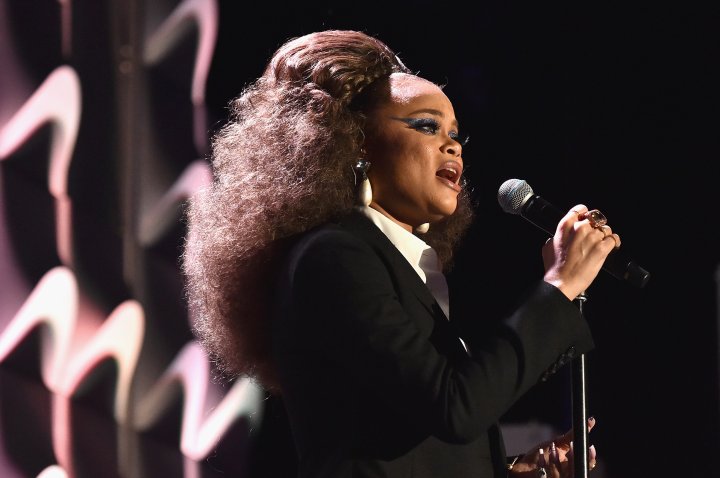What inspired you to write "Rise Up"? My music and my personal life were both stagnating at the time, and a friend of mine had been diagnosed with cancer. "Rise Up" started as a sort of prayer—I thought about what I needed to hear to be able to get back on my feet. Most of the song came streaming out in the first freestyle recording. Honestly, there are lines in there I'd normally find cliché. But sometimes a good cliché is exactly what you need in a moment of hopelessness.
Black Lives Matter has adopted the song as its unofficial anthem. That's right. It's a huge honor because Black Lives Matter represents standing up to oppression and persecution. Having the group connect with "Rise Up" made me more aware that I need to use my platform to serve the community.
You've also helped shed light on lynching in America by covering Billie Holiday's "Strange Fruit" for the Equal Justice Initiative. What are you hoping to achieve by tying your music to activism? I want to tell the truth about the racial terror that's happened and that's still happening today in this country. Too often we change the narrative to make things more digestible, but the reality is, if we don't address injustice honestly and openly, we'll never heal.
You collaborated with Common on "Stand Up for Something" for Marshall, a biopic on the first black U.S. Supreme Court justice. Why did you want to get involved with that project?
I think our purpose as human beings is directly tied to how we help people. And Thurgood Marshall's vision was exemplary of that, from his quest for equal justice to simply having true empathy for others.
Whom do you look up to? People like Common, Stevie Wonder, and Michelle Obama are focused on love, healing, and serving others. They understand that just because you haven’t walked in someone else's shoes doesn't mean his or her experience is any less important than your own.


